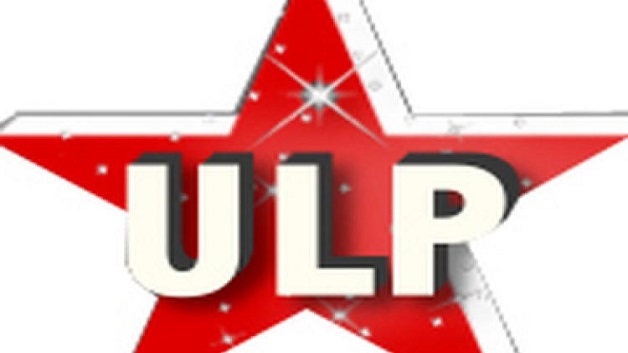By Unity Labour Party
The issue
Historically, there have been four political tendencies among our people, namely: (i) Roll-over-and-play-dead to colonialism, neo-colonialism, imperialism, and monopoly capitalism; (ii) Accommodation, as strategy, in a vassal-like relationship to colonialism and imperialism; (iii) Accommodation, as tactics, in pragmatic terms to acquire people-oriented benefits; and (iv) creative resistance, renewal, and people-centred development.
Of all the governments in SVG since universal adult suffrage in 1951 up to the reclamation of independence in 1979, and subsequently, the ULP government has elaborated the tendency of creative resistance, renewal, people-centred development and fashioned it into a fully-fledged popular tradition, underpinned by the requisite vision, philosophy, and action. In the process of its elaboration, fashioning, and activism — a composite political praxis —, the ULP has had to make, from time-to-time, tactical accommodations as it leads the ascent of our people to transformative lives, living, and production.
Altering the colonial/amended colonial economy
In 2001, the ULP recognised that the colonial/amended colonial economy of SVG required fundamental alteration. Without this alteration, no sustainable development was possible. The economic base had to be transformed and lifted higher in quantitative and qualitative terms. The imperative was to embark upon a quest to build a modern, competitive, many-sided post-colonial economy which is at once national, regional, and global.
The old economy (colonial/amended colonial economy) had certain core distinctive features which engendered high levels of unemployment, high levels of poverty and indigence, highly restricted economic opportunities for the people, low levels of wealth creation and prosperity, socio-economic inequity at high levels, and technological backwardness. The internal contradiction of this “old economy” and its anachronistic character in face of globalised monopoly capitalism, signalled that its days were numbered; SVG was on a quick march to a socio-economic dead-end, stagnation, and collapse.
This “old economy” was based essentially on the following: Unlimited supplies of cheap unskilled labour; low or backward levels of applied science and technology; production subsidies at home for a largely mono-crop economy; colonial market preferences abroad; and an undiversified economy and/or diversification at an informal/small scale level.
The altered economic quest and paradigm required the following core bases: Abundant supplies of skilled labor priced at levels approximating those in the international division of labour; a modern diversified economy with multiple viable sectors, integrated with each other; a high or much higher than hitherto level of applied science and technology in the production and distribution of goods and services; an enhanced role of the State in the management /facilitation and ownership of the economy though in a harmonious partnership with the private and cooperative sectors; trade arrangements which were fair and rules-based, multi-laterally; an emphasis on mature regionalism and the bolstering of OECS/CARICOM trade; robust competitiveness and enhanced efficiencies in the economic/commercial enterprises; and an activist, relevant foreign policy.
What had to be done?
The ULP government had to implement policies to effect the transformation from the “old economy” to the modern, competitive one, mainly through the following: (i) The Education Revolution for Living and Production; (ii) Enhancing the application of science, technology and innovation including restructuring the delivery of information technology services, and introducing more advanced scientific, technological initiatives in the economy; (iii) Constructing the Argyle International Airport and the Canouan Jet Airport, and building the Modern Cargo Port; (iv) Building multiple roads and bridges, including the iconic Rabacca Bridge, linking the extreme northeast of St. Vincent with the rest of the country; (v) Implementing the Heath, Wellness, Housing, and Social Protection Revolutions; (vi) Strengthening the efficacy and efficiency of the State apparatus; (vii) Delivering optimally policies of mature regionalism and foreign policy activism.
Timely roll-out
The roll-out of the quest to build a modern, competitive, many-sided post-colonial economy in an economy the size, structure, historical anti-developmental legacies, contemporary challenges of the global political economy, and climatic disasters, has had to be sequenced wisely, amidst all the contradictions inherent in that process.
The rupturing of the “old economy” and the “ancient regime” of subservience to imperialism while constructing the altered paradigms in the people’s interest has been a difficult and complicated strategic venture, particularly in a context of ideological backwardness and anti-people stances of a set of neo-colonial forces led by the opposition New Democratic Party (NDP) in league with the worst elements of imperialism.
The “old economy” and the “ancien regime” were constructed over a period of over 230 years before the ULP’s arrival in office. Clearly, the alteration of this old economic order and its political superstructure cannot be accomplished in a single generation but the ULP government has put this transformation on a definite path to achieve sustainable development. More work is still to be done. But the ULP government is the only entity in the country to continue to lead this massive transformation.
Forward ever
The agenda in going forward has been laid out with crystal clarity in Comrade Ralph’s most recent book: A Time of Respair: Beyond COVID Volcanic Eruptions, Hurricane Elsa, Global Turmoil: Fresh Hope for SVG [September 2022]. The masterful Budget 2024 presented by Camillo in January 2024 advances the work-plan for the current period with the central purpose of building a better life for all Vincentians, especially the poor, the working people, the farmers, and fisherfolk. The ULP is, and remains, the answer to lead our people’s sustainable development over the next 25 years. It is moulding the next generations of leaders between the years of the young (18-35 years) and 36-55 years. The ULP constantly refreshes itself with personnel, ideas, structures, and systems. And Comrade Ralph, the metaphoric “ancient warrior” with modern, revolutionary ideas is currently leading the way as the creative rebel, builder, and visionary.
The opinions presented in this content belong to the author and may not necessarily reflect the perspectives or editorial stance of iWitness News. Opinion pieces can be submitted to [email protected].






